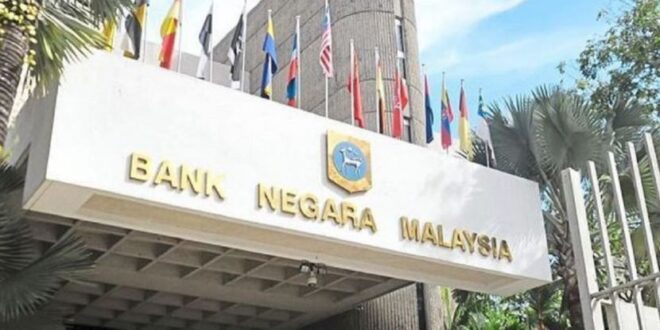KUALA LUMPUR: Bank Negara has kept the overnight policy rate (OPR) unchanged at 3% following the conclusion of its two-day monetary policy committee (MPC) meeting.
The decision, which was in line with the expectations of economists, sees the central bank staying put on the benchmark lending rate since it was last raised 25 basis points in May 2023.
“At the current OPR level, the monetary policy stance remains supportive of the economy and is consistent with the current assessment of inflation and growth prospects,” said Bank Negara in a statement.
The central bank said the latest indicators point towards sustained strength in economic activity in the second quarter of 2024, driven by resilient domestic expenditure and better export performance.
It said it expects exports to be further lifted by the global tech upcycle given Malaysia’s position in the semiconductor supply chain, as well as continued strength in non-electrical and electronics goods.
Meanwhile, tourist arrivals and spending are also poised to rise further.
Continued employment and wage growth, as well as policy measures, will continue to support household spending.
Investment activity would be supported by the ongoing progress of multi-year projects in both the private and public sectors, the implementation of catalytic initiatives under the national master plans, as well as the higher realisation of approved investments.
The growth outlook is subject to downside risks from weaker-than-expected external demand and larger declines in commodity production.
Bank Negara said headline and core inflation in 2024 are expected to average within the earlier projected ranges of 2%-3.5% and 2%-3% respectively.
It reported that both headline and core inflation averaged 1.8% in the first five months of the year, although this is expected to pick up in the second half of 2024 due to the rationalisation of diesel subsidies.
As for the ringgit, the central bank said it continues to be primarily driven by external factors, namely expectations of major economies’ monetary policy paths and ongoing geopolitical tensions.
“Bank Negara will continue to manage risks arising from heightened financial market volatility. Over the medium term, domestic structural reforms will provide more enduring support to the ringgit,” it said.
 BeritaKini.biz Berita Viral Terkini di Malaysia
BeritaKini.biz Berita Viral Terkini di Malaysia





